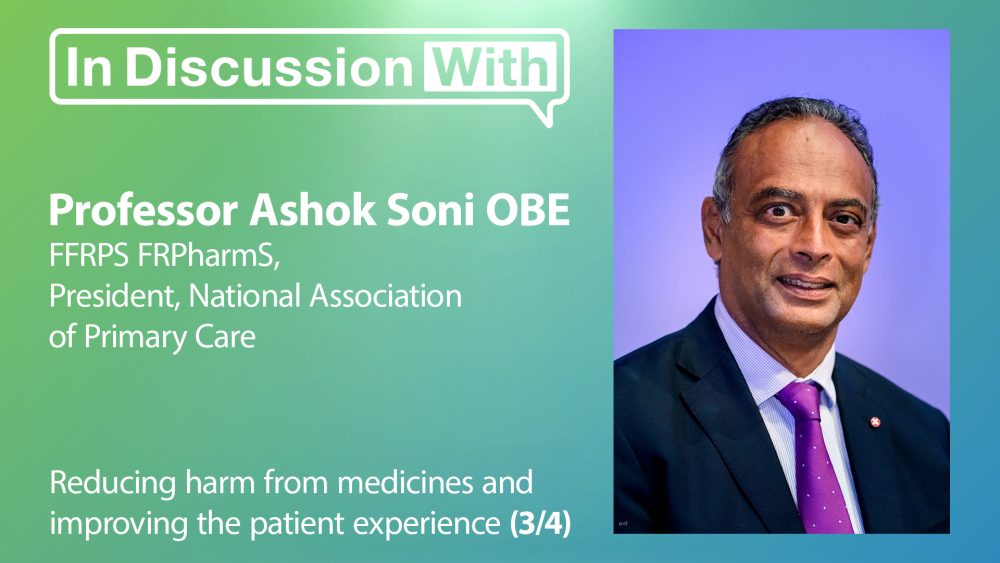Advertisment
Reducing harm from medicines and improving the patient experience

Reducing harm from medicines and improving the patient experience are two objectives that go hand in hand and building in pharmaceutical expertise from the outset is a powerful way to achieve them, according to Professor Ashok Soni OBE, community pharmacist and President, NAPC.
The UK, through the then Secretary of State for Health, Andrew Lansley, signed up to the WHO global initiative aiming to reduce the level of severe, avoidable harm related to medications by 50% over the next five years. However, the way that it was tackled focused largely on improving safe prescribing. This approach did not enable pharmacists to be as effective as they could be, says Professor Soni. Given that approximately eight per cent of all hospital admissions are medicines-related, a stronger focus on medicines optimisation would have helped, he explains. Optimising the use of medicines is likely to reduce the numbers of patients admitted to hospital for medicines-related causes and that releases capacity for patient care, he adds.
One problem that commonly occurs when patient pathways are being designed is that the way medicines and pharmacy services tend to be an afterthought rather than being a fundamental part of the pathway. “It’s not deliberate, in the sense that the people that are there ignore it, but you don’t know what you don’t know, and if you haven’t got a voice there that’s raising it you don’t hear it – and therefore it becomes a gap”, he says
A good example of this was the planning for the coronavirus pandemic.
“When planning historically has been done for pandemics, or for any type of major event like that, they never included pharmacy. [It] was never seen as part of the solution and yet without pharmacy in its broadest context the entire vaccination program would have fallen over”, says Professor Soni. Pharmacists and pharmacy services were needed to manage storage and logistics for vaccines that had to be kept at very low temperatures. “Then you had the whole issue about who was providing it – who was delivering it. Well actually, if you didn’t have the pharmacists on site, they didn’t know how to make it up, even in some of the in some of the central sites that they used, so, again a pharmacist was essential. Community pharmacy’s being part of the provision was a bit of an afterthought. We weren’t included at the very beginning we were included quite quickly because there was a realisation there wasn’t enough capacity – but it was still an afterthought. And yet now, the majority of vaccine provision for covid is now provided through community pharmacy. That is the biggest site, particularly in London, compared to any other provider – so you can see how it’s become more important”, he explains.
Professor Soni notes that community pharmacy has progressively taken on the bulk of flu vaccination as numbers increase year on year. Many GPs have told him that they are seeing fewer patients for flu vaccination than they did in the past.
“That’s where patient choice becomes a really important part of the jigsaw. So, it’s really important you include all of the players who are involved as part of what you’re trying to do. You need to involve the people on the ground who are doing some of this because actually innovation comes from the ground up – it doesn’t tend to come from people who do the buying”, he concludes.
About Ashok Soni OBE
Ashok Soni OBE is president of the National Association of Primary Care (NAPC) and is the first pharmacist to hold this position. As a community pharmacist and owner of three pharmacies, much of his time over the past two to three years has been devoted to vaccinations. Having “some incredibly talented staff” has enabled him to take on a number of other roles: He is a non-executive director at Oxford University Hospitals and a non-executive director at Sussex Integrated Care Systems (ICS), known as NHS Sussex, where he chairs the Workforce and Remuneration body.
Read and watch the full series on our website or on YouTube.





